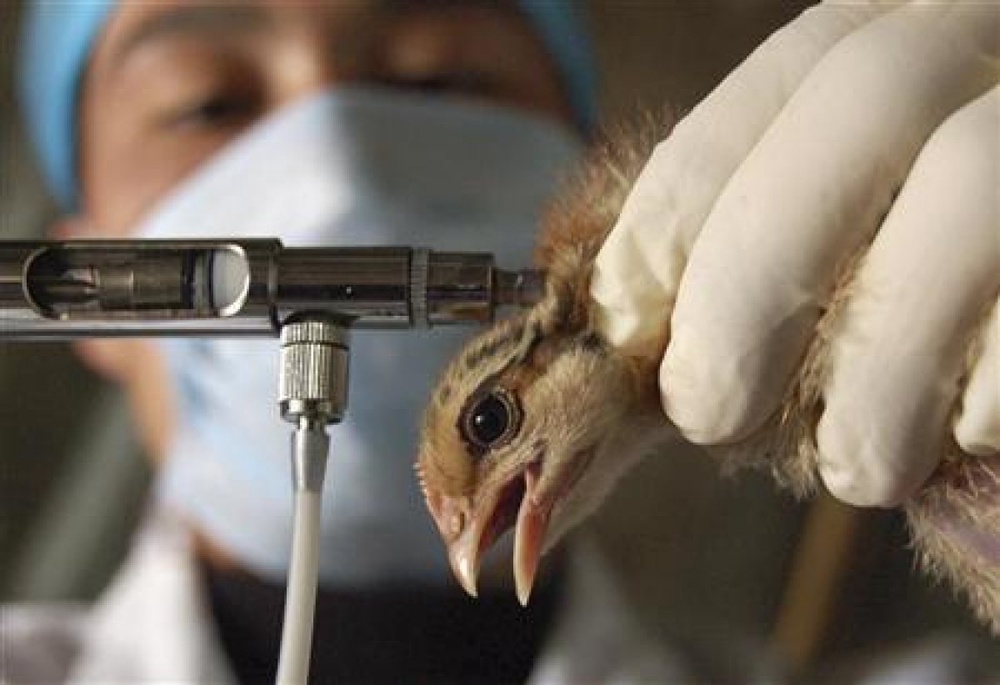
Mexico will start vaccinating some 10 million poultry Thursday against the highly contagious bird flu strain that has already led to the deaths of five million birds which either fell ill or were slaughtered, AFP reports. "Starting tomorrow, we are going to vaccinate hens and chicks across the country to put an end to this bird flu epidemic," Mexican President Felipe Calderon said. The president indicated that the ultimate goal is to have a batch of 80 million vaccinations, so that "in the coming weeks, (Mexico can) end this economic impact on poultry producers." The virus responsible for the outbreak, H7N3, has occasionally caused human disease in various parts of the world, according to the United Nations, but has not shown itself to be easily transmittable between humans. The prices of both eggs and chickens have soared in the wake of the outbreak, leading inflation to rise as well. According to Mexico's national statistics agency, the first half of July saw an inflation rate of 4.45 percent, the highest level in 18 months. The agriculture ministry has said poultry farming "contributes up to 40 percent of the total volume" of the country's livestock production, and the "economic loss" from this epidemic "is and will be irreparable." The outbreak was first detected June 20 in the western state of Jalisco. A national animal health emergency was declared at the beginning of July. Health officials keep a close watch on such outbreaks since so-called swine flu broke out in Mexico in 2009. The H1N1 virus spread into a global pandemic that claimed the lives of 17,000 people.





Mexico will start vaccinating some 10 million poultry Thursday against the highly contagious bird flu strain that has already led to the deaths of five million birds which either fell ill or were slaughtered, AFP reports.
"Starting tomorrow, we are going to vaccinate hens and chicks across the country to put an end to this bird flu epidemic," Mexican President Felipe Calderon said.
The president indicated that the ultimate goal is to have a batch of 80 million vaccinations, so that "in the coming weeks, (Mexico can) end this economic impact on poultry producers."
The virus responsible for the outbreak, H7N3, has occasionally caused human disease in various parts of the world, according to the United Nations, but has not shown itself to be easily transmittable between humans.
The prices of both eggs and chickens have soared in the wake of the outbreak, leading inflation to rise as well. According to Mexico's national statistics agency, the first half of July saw an inflation rate of 4.45 percent, the highest level in 18 months.
The agriculture ministry has said poultry farming "contributes up to 40 percent of the total volume" of the country's livestock production, and the "economic loss" from this epidemic "is and will be irreparable."
The outbreak was first detected June 20 in the western state of Jalisco. A national animal health emergency was declared at the beginning of July.
Health officials keep a close watch on such outbreaks since so-called swine flu broke out in Mexico in 2009. The H1N1 virus spread into a global pandemic that claimed the lives of 17,000 people.

 +7 (777) 001 44 99
+7 (777) 001 44 99



 Қазақша
Қазақша Русский
Русский English
English














































